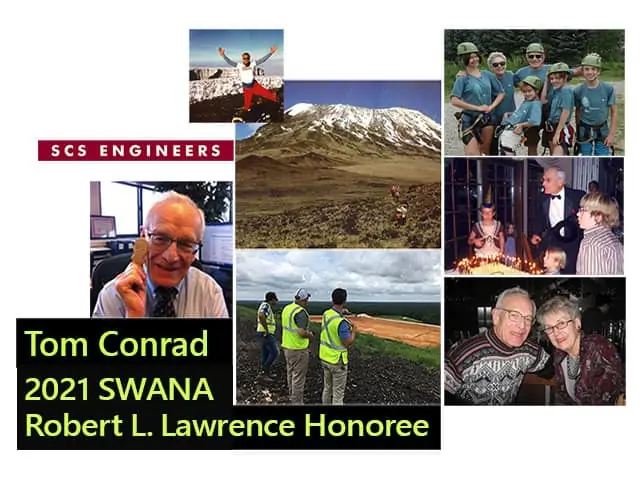

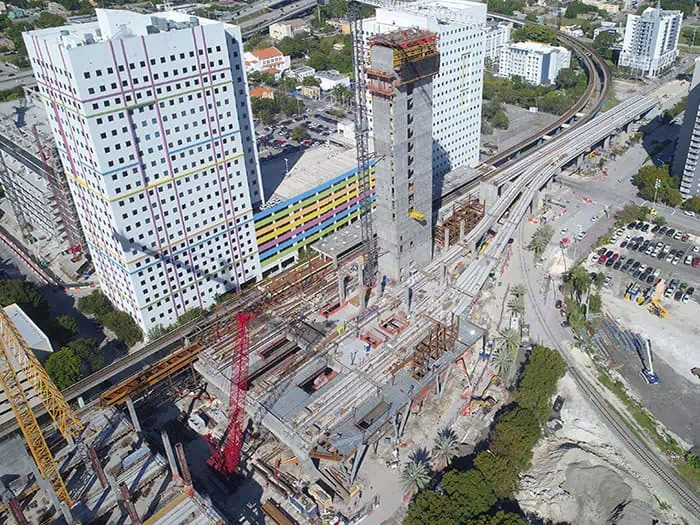
Recycling land and properties helps build opportunities for creating and transitioning commercial and mixed-use space. It is often a sensible and sustainable option with rising real estate costs, increased due diligence, and a lack of greenfield in and around urban areas with established infrastructure.
Miami-Dade County, nestled between the Atlantic Ocean and the Everglades in Florida, faces a significant challenge in finding space for new development. With land becoming increasingly scarce, attention has turned towards redeveloping sites left vacant due to contamination or the perceived presence of contamination, such as brownfield designated areas, agricultural lands, golf courses, old dumps, and closed landfills.
Despite the challenges these sites pose, such as contamination from pesticides, herbicides, and other pollutants, developers and investors are finding many benefits to redeveloping these sites for residential, mixed-use, and commercial purposes.
Sustainable Benefits for Developers, Investors, Local Businesses, and Communities
Increased Community Value: Vacant, contaminated sites offer little benefit to communities. Redeveloping these areas can transform them into safe, productive commercial or mixed-use spaces, contributing to revitalization and community well-being.
Job Creation: Redevelopment projects stimulate economic activity by creating jobs in construction, engineering, and related fields. Jobs boost local employment rates and support businesses in the area.
Tax Revenue: Land recycling can increase property values and tax revenues for essential community services such as schools, roads, and public facilities.
Tax Credits: Private and public entities conducting voluntary cleanup in Florida, for example, can receive available tax credits of upwards of $500,000.
Federal Funding: EPA’s Brownfields Program provides direct funding via grants for assessment, cleanup, and other environmental-related programs.
Affordable Housing: Repurposing land for residential use can help address housing shortages, offering more affordable housing options in desirable urban and suburban locations.
Environmental Restoration: Through careful planning and adherence to regulations, redeveloped sites can contribute to environmental restoration efforts. Measures like methane gas mitigation systems manage any environmental risks responsibly.
Solutions to the Most Common Challenges
Although redeveloping contaminated properties or land recycling offers benefits, some challenges require insight from specialized environmental engineers. With their more comprehensive knowledge and relationships, these engineers help keep projects safe and on schedule.
Costs and Monetary Support: Assessment and remediation costs are typically the number one factor in why sites are not recycled. However, engaging an environmental program manager who guides you through state and federal funding options can help achieve budgetary goals by offsetting some of these costs.
Regulatory Compliance: Regulations for redeveloping sites are stringent and require experienced professionals who understand the regulatory landscape. Therefore, engaging with an engineer early to perform due diligence will help better qualify and quantify development risks. The same professional can better provide the development team with the closure strategies available to manage and mitigate contaminants effectively.
Risk Management: Risk-based corrective actions (RBCA) are crucial in ensuring the safety of redeveloped sites and land recycling. Without RBCA, many contaminated sites would likely be undeveloped due to high remediation costs. The engineer will tailor actions to a specific county or city regulatory framework to address potential hazards comprehensively. Specialized techniques environmental engineers use include newer technology and engineering processes that can resolve contamination and groundwater issues more efficiently while meeting local, state, and federal mandates.
Innovation and Adaptation: Staying ahead of emerging contaminant challenges such as per- and polyfluoroalkyl substances (PFAS) or remediation limitations is essential as regulatory landscapes evolve. Adapting to new cleanup standards and remediation technologies ensures that redeveloped sites meet or exceed environmental safety expectations both now and in the future. It is also possible for some land recycling projects to account for or verify any carbon savings – an increasingly important consideration to shareholders.
Exploration into Land Recycling and Property Restoration is Rigorous
Redeveloping contaminated land presents both challenges and opportunities. Developers are transforming these sites into valuable community assets by adhering to rigorous environmental standards and employing innovative solutions. From economic revitalization to environmental stewardship, redeveloping contaminated properties or land recycling offers a path toward sustainable growth and improved quality of life in regions around our nation.
Meet the Authors:


Additional Land Recycling Resources:
SCS Engineers has been awarded Phase 1 and Phase 2 on-call brownfield services for the City of Tucson. Voluntary Remediation Programs encourage property owners and other interested parties to invest resources voluntarily to restore contaminated sites as quickly as possible to healthful standards. Often these sites are in now historically significant neighborhoods with excellent infrastructure.
Remediation of Historic Properties
In 2022, the Environmental Protection Agency selected Tucson for a $1 million grant to focus on the neighborhoods of La Doce, Thrive in the O5, Barrio Centro/Julia Keen Neighborhood, and Downtown Tucson/Historic Barrios. The areas were chosen because of their economic and cultural significance to the community and redevelopment potential. Priority sites include a vacant former fueling station, a vacant former private school, a transit center, and an adjacent parking lot.
SCS offers full services such as assessment, cleanup planning, remediation, and regulatory closure of properties participating in grant-funded activities and properties owned or redeveloped by the City.
“Our team has deep experience in brownfield environmental services and understands the complexities involved to remediate property successfully,” said Iain Olness, senior project manager at SCS Engineers’ Tempe office. “We are honored to work with local governments across Arizona to return sites into economic drivers for their communities.”
By proactively complying with regulations and completing a progressive assessment process, remediation contractors can avoid project delays and minimize the risks of improper soil transfer. While soil remediation in situ is preferable, it is not always possible.
Assessing and managing regulated waste soil and “clean” or inert soil is an important element in construction and demolition. To succeed, it’s necessary to understand the regulatory and legal framework regarding proper soil transport and disposal in a development setting and to develop best practices to avoid the risk and liability of shipping contaminated soil to unauthorized destinations.
Naturally occurring metals such as arsenic can be elevated because of regional geologic sources that exceed regulatory screening levels and disposal standards. Are these hazardous wastes? That depends on the concentrations of the chemical constituents or metals in the soil. Properties with previous land use often show concentrations of these constituents in the soil below hazardous waste levels but high enough to designate certain soils as regulated nonhazardous waste. Contractors must dispose of or recycle this soil at a properly licensed facility or face heavy penalties.
If your project requires importing and exporting soil, follow Environmental Consultant Keith Etchells’ advice in this C&D Magazine article to keep compliant with regulatory agencies and costs low during soil disposal.

SCS Engineers welcomes two experienced environmental consulting professionals to our St. Louis regional office.
Susan Robertson, MBA, is Senior Project Manager. Robertson’s comprehensive environmental due diligence and remedial work rejuvenates prime commercial properties back to health while supporting municipal and private industries’ plans for economic redevelopment.
In the environmental industry for nearly 20 years, Susan has worked on a wide range of consulting projects, including environmental due diligence Phase I and Phase II Environmental Site Assessments. She performs Indoor Air Quality and radon assessments, lead-based paint, and asbestos inspections.
Susan is known for her Brownfield-Voluntary Cleanup Program work under the Missouri Department of Natural Resources¹, Illinois EPA Tiered Approach to Corrective Action, and Missouri Risk-Based Corrective Action risk assessments and historic preservation projects under the Missouri Department of Economic Development².
Julia Hunter is an SCS Project Professional. Julia has five years of experience in environmental consulting, primarily performing environmental due diligence for commercial and telecommunications clients nationwide. She has a Master of Science in Environmental Geoscience from St. Louis University.
Hunter uses the highest standards of care in her due diligence and building sciences investigations, analyzing the data to determine if a property is feasible for its proposed use and future requirements to speed the closure process and ensure no surprises.
“The service these two women perform for our clients is strategic and comprehensive,” states Rachel McShane, SCS – St. Louis project director. “The results of their work help determine the true value of a property before purchase, and if there are any environmental or health concerns, how to remediate them.”
Additional Resources:
With the new available housing supply critical in San Diego and across the country during the current housing crisis, affordable housing options for low-income people in need are more important than ever. Below are several examples of recent Brownfields projects that have been or are under development by affordable housing developers to benefit the critical needs of the developmentally disabled and seniors.
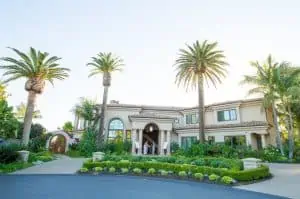
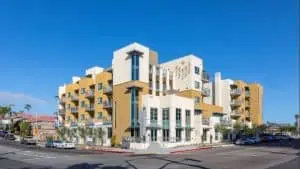
RD Brown Company and EAH Housing – Imperial Seniors – A former gasoline service station in the City of Imperial is being redeveloped into an assisted senior living facility. The project has gasoline impacted soil, groundwater, and currently has an open unauthorized release case overseen by the Regional Water Quality Control Board. The Water Board allows the proposed development to move forward while the case is still open, provided that a vapor barrier is installed beneath the proposed building and groundwater remediation and monitoring continue until gas/benzene levels in groundwater meet acceptable levels. Construction is on schedule to start in 2022.
The International Awards Committee and Solid Waste Association of North America (SWANA) Board of Directors unanimously voted to honor Tom Conrad, the “C” in SCS, with the Robert L. Lawrence Distinguished Service Award at WASTECON 2021 in November. The Lawrence award is the highest accolade SWANA bestows on a member of the waste management industry, reserved for those making meaningful and lasting contributions.
“I’m honored and humbled to be selected for the Robert L. Lawrence Award. I thank you and am especially thankful for what SWANA and SCS are today,” stated Tom Conrad.
SWANA recognizes Conrad for over 60 years of significant influence on the waste management and environmental services industry. Conrad, a Founder, Executive Vice President, and Director Emeritus of SCS Engineers, dedicated his career to advancing solid waste management, most notably through the founding of SCS Engineers (Stearns, Conrad, and Schmidt Consulting Engineers) more than 51 years ago.
Tom Conrad worked on a wide range of environmental engineering projects touching almost every aspect of solid waste management throughout his career. As an environmental engineering firm and consultant to the newly created US Environment Protection Agency (EPA), the founders recognized that responsible solid waste management was increasingly important for protecting the environment and the health and safety of the general public.
Leading SCS, he helped the EPA develop the first federal regulations for sanitary landfills, managing and capturing landfill gas, waste sorting protocols, sludge management, and land remediation.
Environmental services, including wastewater management, were always a significant part of SCS services and the waste industry. When new regulatory policies began expanding in the ’80s, SCS’s techniques, technology, and expertise helped a broad range of industries comply with environmental needs and continues today with the firm’s greenhouse gas, landfill technology, renewable energy, remediation, and sustainable materials management programs.
Conrad is also known for hiring and mentoring today’s SCS leaders, many of whom are SWANA leaders, by creating and fostering SCS’s culture encouraging employee participation in industry associations, community, and SCS’s mentorship and leadership programs.
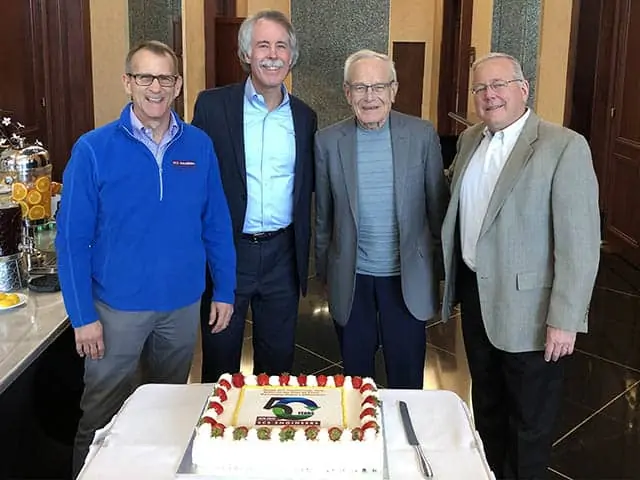
Before his retirement in 2016, Conrad held professional engineering licenses in 24 states. He was a member of SWANA, the American Society of Civil Engineers, the National Waste and Recycling Association, and the Society of American Military Engineers.
He maintains his “work hard – play hard” lifestyle. He is active at SCS, participating in Board of Director meetings and speaking at the Young Professionals Group events and celebrations. While no longer mountain climbing and biking cross-country, he has a vigorous walking, swimming, and biking schedule.
